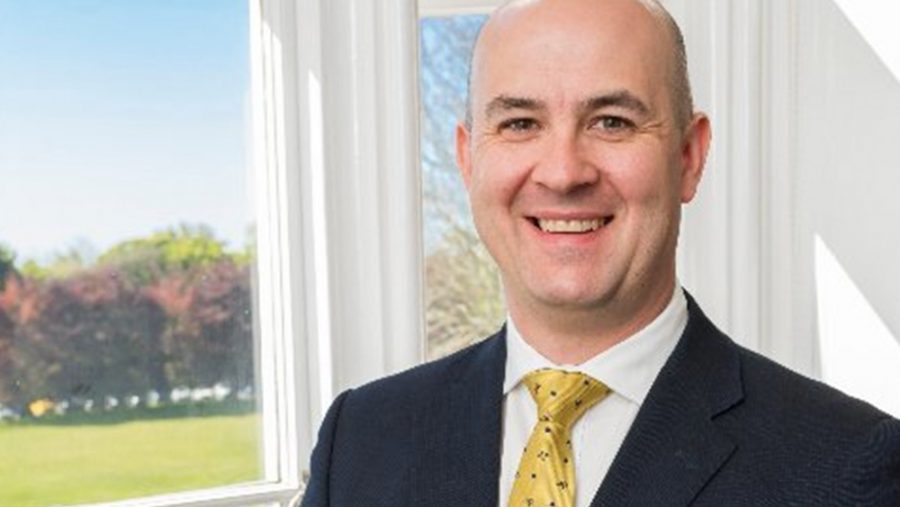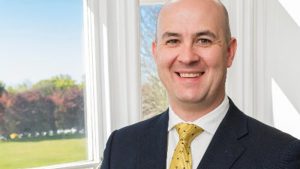Andrew Rhodes: “The serious non-compliances we see are defining how all of you get perceived”

The Gambling Commission’s CEO touched on M&As and the emergence of new products in a CEO briefing.
UK.- Andrew Rhodes, CEO of the British Gambling Commission, has provided an overview of his take on the state of the market in his CEO briefing speech. He examined market trends, raised concerns about illegal betting and flagged up the emergence of new products.
Rhodes noted that the UK’s 10 biggest operators had strengthened their market share, now accounting for 77 per cent of gross gambling yield. He suggested that this could rise further, noting that the “appetite for acquisitions continues and the focus of mergers and acquisitions seems to be driven by operator strategies to diversify into new jurisdictions”.
He said M&A created complexity for the regulator due to “more and more complex transactions or complex ownership structures”. He said: “This means we need to rethink the way we approach this area from an operational standpoint as a minimum.”
Rhodes stressed that he was only observing the trends and was not making any judgement on the impact of M&A activity, noting that competition thresholds were a matter for the Competition and Markets Authority (CMA).
Novel gambling products
Complexity had also increased due to innovation and novel products that “push the boundaries of the definition of gambling” and “either looks to capture existing market share or to draw new consumers into the market”. He highlighted examples of blockchain-based assets like NFTs and synthetic shares.
He said that whether these products can be “defined and regulated as gambling is becoming increasingly blurred”, but that the regulator would ask “questions of any operator” looking to enter the space.
Regulatory collaboration
Rhodes also recognised the danger of customers turning to illegal gambling sites. In this area, he said the Gambling Commission had stepped up cooperation with other regulatory bodies to seek consistency across jurisdictions.
“The illegal market will always continue to evolve and is difficult to eliminate, so our efforts will increasingly be further upstream to seek to disrupt these illegal sites as much as possible,” he said.
“But we cannot see this as being about the lowest common denominator. We cannot reasonably argue that some practices should continue because illegal gambling is worse.
“We cannot condone bad practice in the legitimate market and I think you would all agree with me on that. I think the risks from the so-called black market are overstated, but that doesn’t mean I don’t think they exist.”
He added: “I think this is important as many of you operate in multiple jurisdictions, so any consistency we can achieve, assuming that is a positive consistency, has to lead to a better regulatory landscape.
“A key focus of our increasing interaction with those international regulators has been in building a combined effort to tackle illegal gambling sites. Clearly, between the regulators, there is a difference between illegal gambling sites that face into a jurisdiction where they must have a licence and operators who have customers in countries where the operator cannot seek a licence.”
Hate mail and death threats
Rhodes told the CEOs present that he had received hate mail and death threats due to his role at the helm of the Gambling Commission but that this “comes with the job”.
“If you want to make people happy, you should sell ice cream for a living – don’t regulate the gambling industry,” he said.
He said those in the industry were not required to like the Gambling Commission. He recognised operators’ efforts on social responsibility but also levelled a warning: “I will be very straight with you, as I generally am. I am sick of talking about non-compliance and I am already tired of it defining how we see the industry you are in and the experience of too many consumers.
“It is not everyone in this room, but whether you like it or not, the serious non-compliances we see are defining how all of you get perceived. It defines how you are lobbied against and it defines how government, politicians, the media and a raft of others picture you.
“Some of you may not care. It’s not my issue, it’s yours, but it can have consequences for all of you. I’m going to set out for you now where my focus is and where I would like it to be and how I want us to get there.”
To conclude, he said that the Gambling Commission’s three goals were “putting people first”, “doing the right thing” and “regulation that works for all”.
UK: Sunak vows “to fix the catastrophe of online gambling”
The Times has reported that UK Prime Minister Rishi Sunak is now about gambling addiction and favours stricter controls. According to political editor Steven Swinford, he intends to “fix the catastrophe of online gambling”.
That will see him “resurrect plans to curb online gambling” and thereby deliver on a Conservative pledge from its 2019 manifesto. The gesture would appear to suggest that the gambling review is back on after the endless delays. It seems unlikely that a white paper will appear before 2023, but The Times says that some are pushing for it to be published before Christmas.










